Uncategorized
-
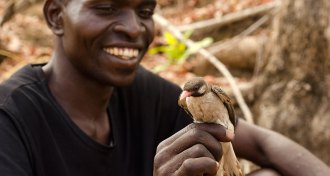 Anthropology
AnthropologyHumans, birds communicate to collaborate
Bird species takes hunter-gatherers to honeybees’ nests when called on.
By Bruce Bower -
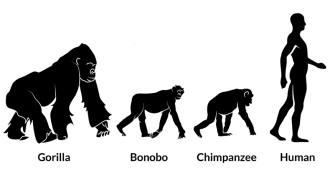 Genetics
GeneticsEvolution of gut bacteria tracks splits in primate species
Primates and microbes have been splitting in sync for at least 10 million years.
-
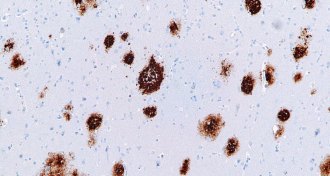 Neuroscience
NeuroscienceAntibiotics might fight Alzheimer’s plaques
A new study found that antibiotics hit Alzheimer’s plaques in the brains of mice.
-
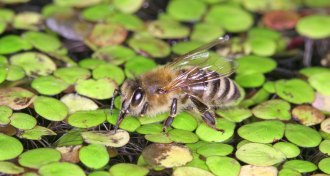 Animals
AnimalsTo douse hot hives, honeybee colonies launch water squadrons
The whole superorganism of a honeybee colony has sophisticated ways of cooling down.
By Susan Milius -
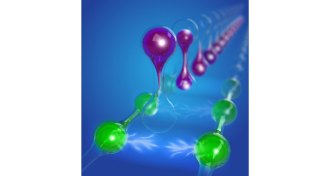 Physics
PhysicsElectrons have potential for mutual attraction
Electrons usually repel each other, but new research shows pairs of electrons can be attracted due to their repulsion from other electrons.
-
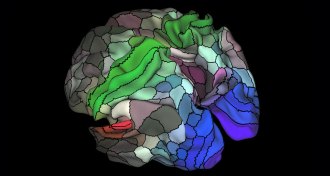 Neuroscience
NeuroscienceNew brain map most detailed yet
By combining different types of data, researchers have drawn a new detailed map of the human brain.
-
 Health & Medicine
Health & MedicineAnesthesia steals consciousness in stages
Brains regions that are synchronized when awake stop communicating as monkeys drift off.
-
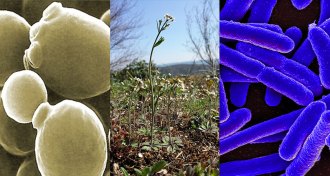 Genetics
GeneticsSwapping analogous genes no problem among species
Many genes are interchangeable between yeast, bacteria, plants and humans.
-
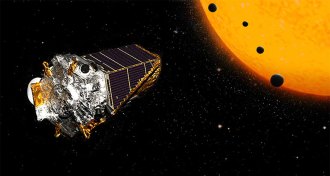 Astronomy
AstronomyKepler tally grows: 104 more exoplanets confirmed
Kepler space telescope adds another 104 planets to its growing census of worlds in our galaxy.
-
 Genetics
GeneticsHerbicide no match for fruit flies’ gut microbes
Friendly gut bacteria team up to break down herbicide that might otherwise harm fruit flies.
-
 Health & Medicine
Health & MedicineNo one-fits-all healthy diet exists
Mice’s response to diet varies with their genes.
-
 Physics
PhysicsScientists throw a curve at knuckleball explanation
Wildly swerving pitches may be the result of a phenomenon known as a “drag crisis”